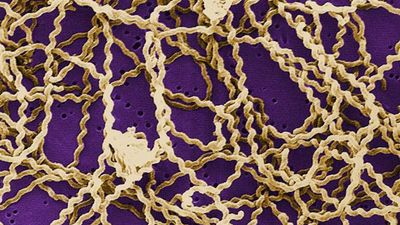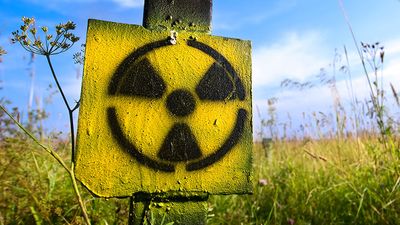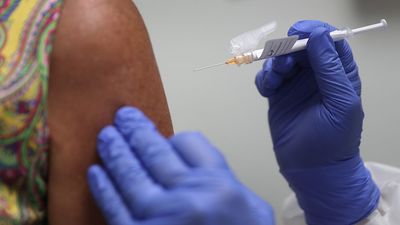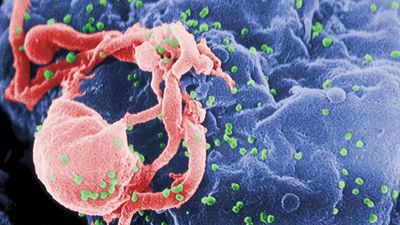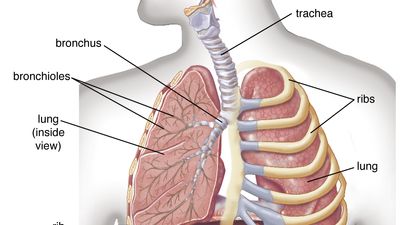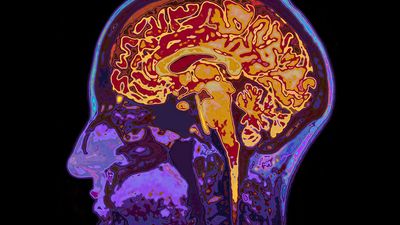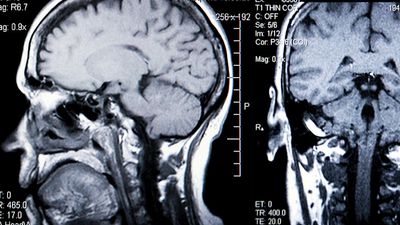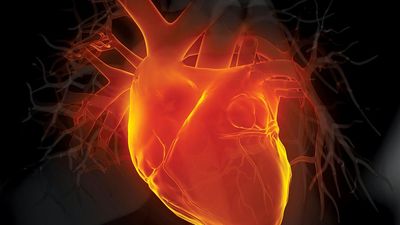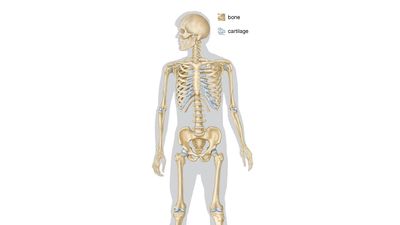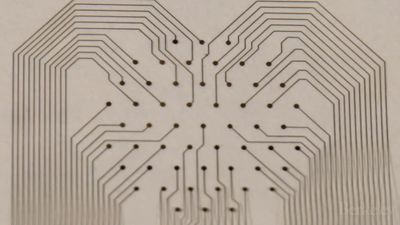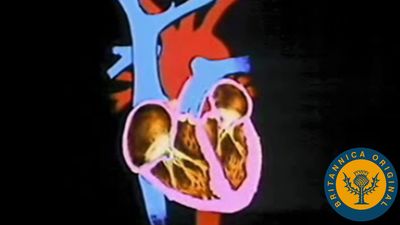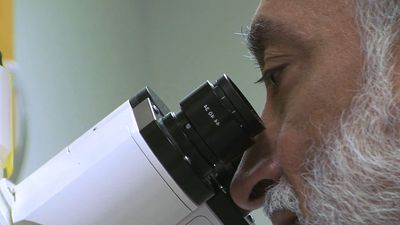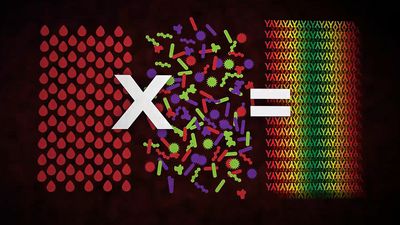Health & Medicine
The study of the human mind and body, how these function, and how they interact—not only with each other but also with their environment—has been of utmost importance in ensuring human well-being. Research on potential treatments and preventive medicine has expanded greatly with the development of modern medicine, and a network of disciplines, including such fields as genetics, psychology, and nutrition, aims to facilitate the betterment of our health.
Browse Subcategories
Featured content, July 28, 2023
8 Zoonotic Diseases
It’s not uncommon for diseases to be passed from animals to humans. Here are some to look out for.
9 Fun Facts About Sleep
While you sleep, your body goes to work, restoring itself and gathering energy for a new day.
How Radioactive Isotopes are Used in Medicine
Radioactive isotopes have a variety of applications in the fields of nuclear medicine and radiotherapy.
How Is a Vaccine Approved for Use?
Before lifesaving vaccines ever gain widespread use in humans, they undergo extensive development, culminating in an application...
therapeutics
Therapeutics, treatment and care of a patient for the purpose of both preventing and combating disease or alleviating pain...
AIDS
AIDS, transmissible disease of the immune system caused by the human immunodeficiency virus (HIV). HIV is a lentivirus (literally...
human respiratory system
Human respiratory system, the system in humans that takes up oxygen and expels carbon dioxide. The human gas-exchanging organ,...
chemoreception
Chemoreception, process by which organisms respond to chemical stimuli in their environments that depends primarily on the...
Health & Medicine Quizzes
Health & Medicine Videos
Image Gallery
Health & Medicine
View Gallery
Health & Medicine Subcategories
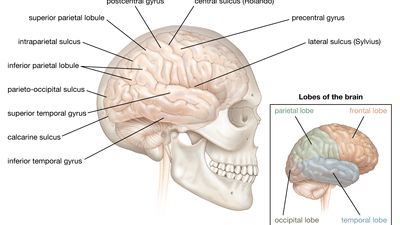 Anatomy & Physiology
Anatomy & Physiology
Human beings have long been curious about the way that things work, and that curiosity includes wondering about how we ourselves work. The fields of anatomy and physiology involve studying the structures of bodies and the way that those structures and bodies function.
Articles
-
anatomy
biology
-
cell cycle
biology
-
immune system
physiology
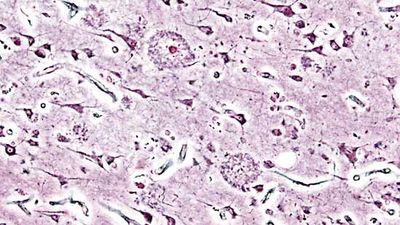 Conditions & Diseases
Conditions & Diseases
Whether we like it or not, living things are susceptible to any number of illnesses and conditions that can threaten or harm the health of those afflicted. Bacteria, viruses, and other microbiological agents are obvious challenges to health. Human disease may be acute, chronic, malignant, or benign, and it is usually indicated by signs and symptoms such as fever or vomiting. Additionally, diseases may be communicable (contagious) or noncommunicable; of the latter, the four major types identified by the World Health Organization are cancer, cardiovascular disease, chronic respiratory disease, and diabetes mellitus.
Articles
- infectious disease
-
speech disorder
medicine
-
poison
biochemistry
 Genetics & Evolution
Genetics & Evolution
The plants and animals that are so familiar to us today may have been harder to spot millions of years ago. The theory of evolution, one of the keystones of modern biological theory, is based on the idea that living things on Earth can be traced back to other preexisting types and that the differences are due to modifications that occurred over successive generations. Genetics, an essential part of the study of evolution, looks at the inheritance of characteristics by children from their parents. It can help explain how you got your mom's green eyes or why your hair is red even though your parents are brunettes.
Articles
-
missing link
evolutionary theory
-
speciation
biology
- human evolution
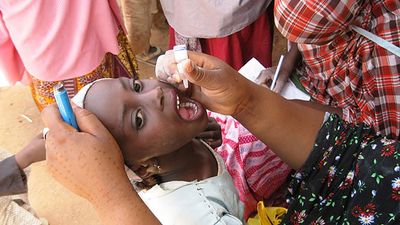 Health, Nutrition & Fitness
Health, Nutrition & Fitness
Health isn't just about being able to impress people at the gym with your weight-lifting prowess. Physical fitness, the body's ability to function properly, and the absence of disease are important factors in determining health, as is one's emotional, mental, and social state. In addition, nutrition provides the energy that fuels all physical and mental activities, including the aforementioned displays of weight-lifting mastery.
Articles
 Human Development
Human Development
Even if you feel like a kid at heart, you probably still went through (or are currently undergoing) the typical process of change and growth that takes place between human infancy and maturity. After birth, human beings undergo infant and toddler development, moving on to child development before progressing to puberty and adolescence on the way to adulthood. Human growth involves not only biological development—the progressive changes in size, shape, and function during the life of an organism—but also emotional and psychological development.
Articles
- infancy
- emotional development
-
old age
human life span
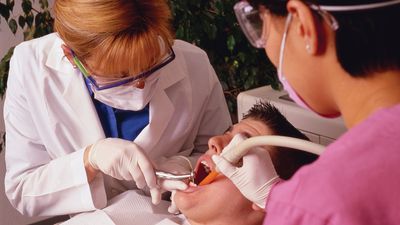 Medicine
Medicine
Humans have long sought to find cures for the ailments and injuries that befall them. This has led to a long history of diverse attempted treatments, including herbal remedies, leeching, hydrotherapy, acupuncture, homeopathy, and more, all the way up to the most recent science-based treatments that have come into use during the development of today's modern medicine. Medical research and the study of the causes of disease have led to rapid and significant advances in medicine, improving both the efficacy of treatments and our understanding of illnesses and how they operate. The importance of preventive medicine has grown, and the field of medicine has become increasingly specialized as medical disciplines and branches such as endocrinology, immunology, psychiatry, radiology, epidemiology, and nanomedicine have emerged.
Articles
-
antibiotic
chemical compound
-
transplant
surgery
-
therapeutics
medicine
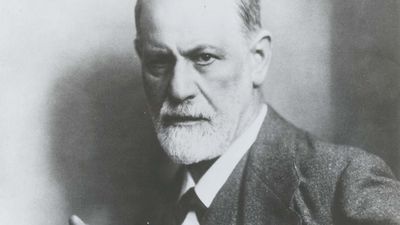 Psychology & Mental Health
Psychology & Mental Health
Although Sigmund Freud was once one of the most recognizable faces of psychology, this scientific discipline has developed significantly since the time of his predominance. Psychology has become an increasingly integrative science at the hub of diverse other disciplines, from biology and neurology to sociology, anthropology, and economics. At the same time, old sub-disciplinary boundaries within pyschology itself are now crossed more freely; interdisciplinary teams may work on a common problem using methods that draw on multiple levels of analysis, whether social, cognitive, or biological.
Articles
-
dissociative disorder
psychology
- Gestalt psychology
-
neuroticism
psychology

